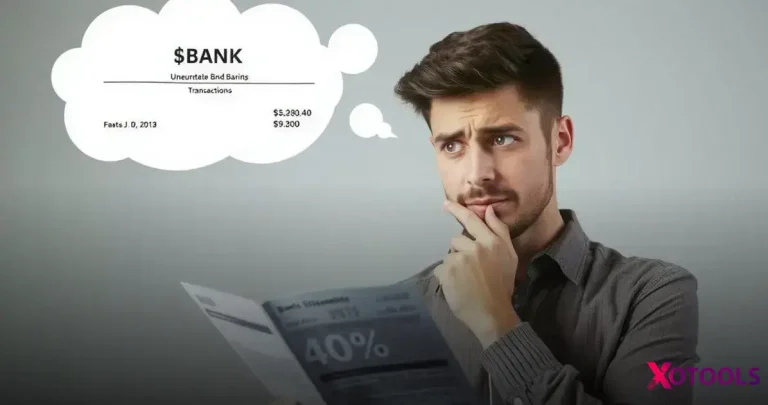ADVERTISEMENT
Can banks take money from your account without permission? This is a question many ask when facing unexpected withdrawals. **Bank policies** often leave customers confused about their rights. Understanding what you can do is vital to protect your finances.
Though banks have certain rights, unauthorized transactions can lead to significant financial loss. Knowing how to respond can make a difference in regaining control. Don’t let uncertainty linger.
Keep reading to discover essential steps you can take to safeguard your money and assert your rights!
Understanding Bank Policies
Understanding bank policies is important for everyone who has an account. Banks create rules about how they manage your money. These policies can dictate when and how they can withdraw funds, as well as what happens if there are issues.
Many people do not realize that banks have specific rights regarding account management. For instance, if you owe money or have fees due, the bank may have the authority to withdraw funds from your account. It’s essential to read your bank’s terms and conditions carefully to know what they can and cannot do with your money.
Being aware of your bank’s policies allows you to protect yourself better. If you ever notice something unusual, such as unexpected fees or transactions, you can address it quickly. Always keep track of your statements and understand your rights to ensure your money is safe.
Legal Rights Over Your Bank Account
Your legal rights over your bank account protect you from unauthorized actions. Each account holder has the right to know how their money is managed. If a bank takes money from your account without proper notice or consent, you have the right to challenge it.
It is also important to understand that banks must follow specific laws when dealing with your funds. They can’t just withdraw money without a valid reason, such as unpaid debts or fees. Knowing your rights helps you know when to act if you see an issue with your account.
If you believe your rights have been violated, you can file a complaint with your bank. You can also contact a consumer protection agency for help. Understanding these legal aspects can give you more control and confidence in how you manage your account.
Common Scenarios of Unauthorized Withdrawals

Common scenarios of unauthorized withdrawals can happen for various reasons. One example is when a bank charges fees that you weren’t aware of. These fees can quickly add up and take money from your account without your permission. Always check your account statements to understand charges and fees.
Another scenario is fraudulent transactions. This can occur if someone gets access to your account information without you knowing. These hackers can make withdrawals or purchases, leaving you to deal with the consequences. It’s crucial to monitor your account closely and report any suspicious activity right away.
Lastly, sometimes banks make errors. They might accidentally withdraw the wrong amount or misprocess a transaction. While mistakes can happen, it’s important to address them quickly. By being aware of these scenarios, you can be proactive in protecting your finances.
Steps to Protect Your Money
Protecting your money starts with monitoring your bank account regularly. Check your statements often to spot any charges or withdrawals you didn’t make. If you notice anything suspicious, contact your bank right away. Quick action can help resolve issues before they become larger problems.
Another vital step is using strong passwords for your online banking. A secure password should be difficult for others to guess and should include a mix of letters, numbers, and symbols. Change your passwords regularly and avoid sharing them. This simple measure can prevent unauthorized access to your account.
Consider setting up alerts for your account activity. Many banks offer text or email notifications for transactions, which can help you stay informed. Alerts can serve as an early warning system if money is withdrawn without your permission, allowing you to act quickly to protect your funds.
What to Do If Money is Taken
If you notice that money has been taken from your account without permission, the first step is to contact your bank immediately. Explain the situation clearly and provide details about the transaction. Most banks have protocols in place to help resolve these issues, but acting quickly is essential.
Next, gather any evidence of the unauthorized transaction, such as screenshots or bank statements. This information will support your claim and make it easier for your bank to investigate. Keeping track of communication with your bank is also important, as it serves as a record of your actions.
If the bank does not resolve the issue or if you are unsatisfied with their response, you can consider escalating the matter. This may involve filing a complaint with a consumer protection agency or seeking legal advice. Understanding your rights will help you take action to recover your funds and protect yourself in the future.
How Banks Communicate Unauthorized Transactions

Banks typically communicate unauthorized transactions through several channels. Most customers first hear about suspicious activity via their bank statements, which list every transaction. If a withdrawal is not recognized, it can trigger a customer’s concern.
Additionally, many banks send alerts through email or text messages whenever a transaction occurs, helping customers stay updated.
Once a customer reports an unauthorized transaction, banks usually follow up quickly. They may contact you directly to verify the details of the transaction. This step helps them confirm if the charge was indeed unauthorized and if further investigation is needed.
If the bank investigates and finds that a transaction was unauthorized, they typically inform you of the outcome. You will be notified about any refunds or compensations due, as well as steps to protect your account from future issues. This communication ensures that customers are kept in the loop and can take necessary actions to safeguard their finances.
Seeking Legal Recourse Against Banks
If you find yourself facing issues with your bank that are not resolved, seeking legal recourse might be an option. The first step is to gather all relevant documents, such as account statements and any communication with the bank. This information will be necessary if you decide to take further action and will help build your case.
Next, consider contacting a consumer protection agency. These organizations can offer guidance and support when dealing with financial institutions. They can also inform you of your rights and assist you in filing a formal complaint if needed. In some cases, they may mediate between you and the bank to reach an agreement.
If the situation remains unresolved, you may need to consult a lawyer who specializes in financial disputes. They can provide legal advice and help you understand whether you have a strong case for pursuing action against the bank. Remember, taking legal action is a serious step, so weigh your options carefully before proceeding.
Unauthorized Transactions
What are unauthorized transactions?
Unauthorized transactions are actions taken on your bank account without your permission, such as unexpected fees or withdrawals.
How can I avoid unauthorized fees from my bank?
Read the fine print on your account agreements to be aware of potential charges and set reminders for subscription cancellations.
What should I do if I suspect unauthorized withdrawals?
If you suspect unauthorized withdrawals, act quickly to secure your account and update your passwords.







